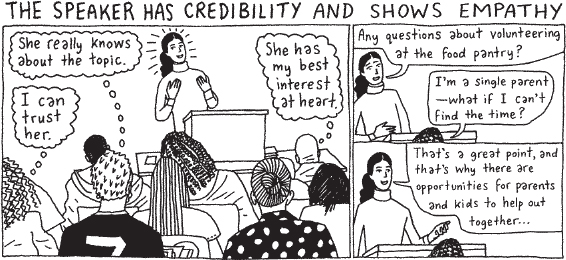Understanding the Elements of Credibility
Printed Page 547

The ancient Greek philosopher Aristotle believed that practical wisdom and virtue are major components of ethos. Modern communication scholars use the term competence to refer to practical wisdom and the word trustworthiness instead of virtue. When audience members perceive a speaker to be both competent (knowledgeable and experienced) about his or her subject and trustworthy (honest and fair), they find it easier to believe that speaker’s claims.1
Aristotle also urged public speakers to exhibit goodwill toward their audiences—by wanting what is best for their listeners rather than what would most benefit themselves.2 According to contemporary researchers, speakers who demonstrate goodwill do the following:
- Understand their listeners’ needs and feelings
- Empathize with their audiences’ views (even if they don’t share them)
- Respond quickly to others’ communication3
